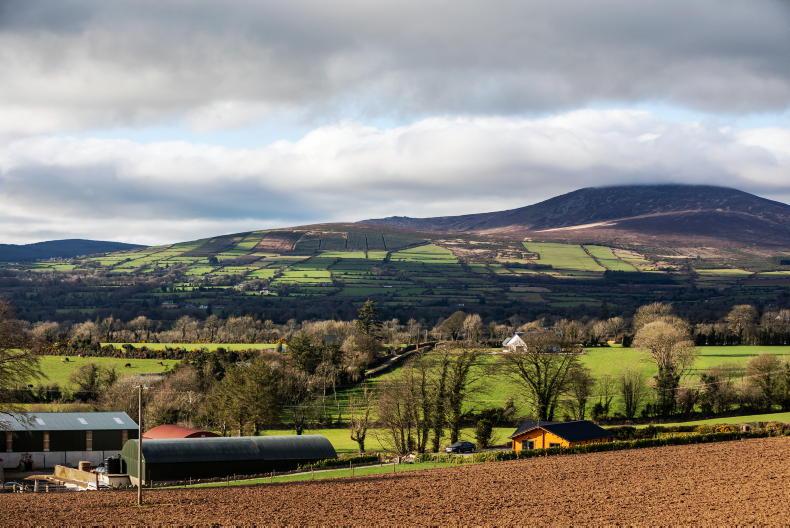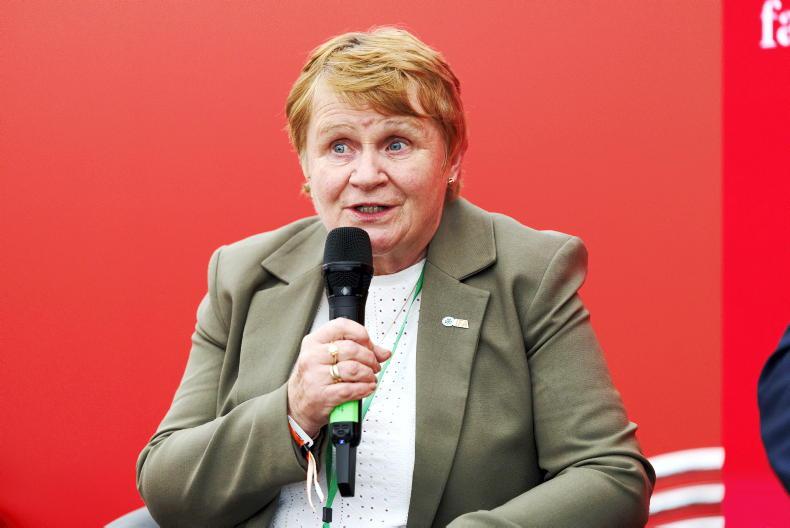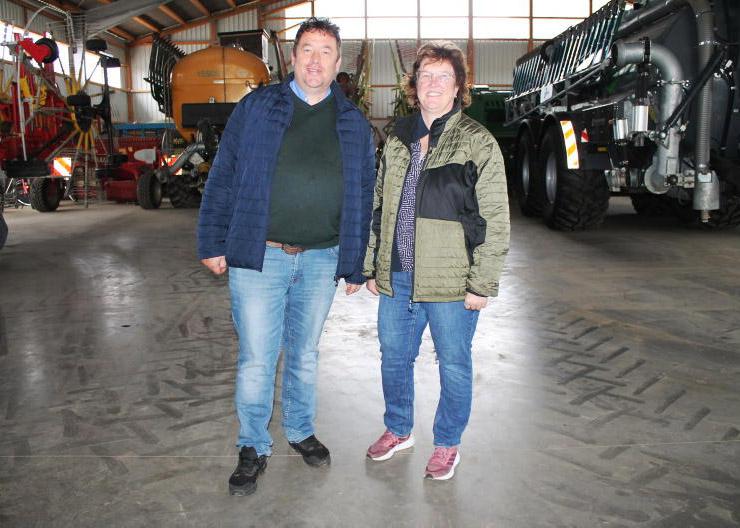Food quality in Germany is too low and so are the prices and everyone loses out, according to Germany’s new Minister for Food and Agriculture, Cem Özdemir.
Speaking to Germany’s largest selling Sunday newspaper, Bild am Sonntag, Minister Özdemir said: “There should no longer be any junk prices, they drive farms to ruin, prevent animal welfare, promote species extinction and burden the climate. I want to change that.
“The price of food should reflect the ecological truth.”
With me, there will be binding reduction targets
The Green party minister noted that consumers are suffering from cheap food with too much salt, sugar and fat, noting that 50% of German adults are overweight. He said the time for voluntary commitments from the food industry is over.
“That’s over now. With me, there will be binding reduction targets.”
Agri-food industry reaction
There was mixed reaction to the minister’s comments.
Farm organisations were in agreement with the need for farmers to be paid fairly, with the German Farmers’ Association calling for a state bonus for farmers who offer better conditions for animals or better environmental protection.
And the key question is: who will pay the price?
Christoph Minhoff, head of the Food Federation Germany, speaking with Deutsche Welle Media, said: “All these aims have been formulated before — the problem is it costs all kinds of money. And the key question is: who will pay the price?”
The German Commission on the Future of Agriculture reported in July and was broadly aligned to what is proposed. It said Germany should reduce livestock, cut meat consumption to better harness the potential for greenhouse gas sequestration. It highlighted the need for increased costs of production to be met from market remuneration for food, especially foods with highly sustainable process and product characteristics.
The report estimated that this transformation would require a €5bn to €8bn per year investment with low income households needing to be compensated for higher food prices. The report highlights that care must be taken to avoid relocating production abroad and notes that an EU-wide approach is urgently needed.
Coalition contract
Germany’s newly agreed coalition contract has two standout “farming” priorities: transformation of the livestock sector and the development of organic farming. It is planned to introduce, as early as 2022, mandatory labelling for livestock farming that also covers transport and slaughter.
Reducing meat consumption is also seen as a priority under the nutrition policy and the promotion of alternative proteins.
The Government is strongly orientated towards sustainable and organic farming with ambitions to end the use of glyphosate by 2023, introduce strict limitations on pesticide use and increase the proportion of land farmed organically from 10% currently to 30% by 2030.
The minister’s comments to Bild newspaper and the coalition contract point to significant ambition in the transformation of Germany’s agri-food sector. German consumer prices are currently reported to be at their highest level in almost three decades as a result of energy and supply chain issues.
Calls for meat prices to include the full environmental cost of production have been growing
It may not be the most opportune time to condition consumers for higher food prices.
Calls for meat prices to include the full environmental cost of production have been growing. This means pricing the cost of carbon into meat and dairy. The question is who pays for this and if meat and dairy would become prohibitively expensive for the average consumers. In addition, the announcement by the EU that the 2022 agri-food promotional policy will encourage a shift to more plant-based diets is a further challenge for the meat protein sector. While Germany may be debating the issues, this has real implications for Irish farmers.
Germany goes
for variable value eco schemes
Before the new German government was established, there was a push to get the German CAP changes across the line.
Germany has decided to go with a significant cut in the existing per-hectare entitlement value to fund a variable value eco scheme (rate depends on option), redistribution (front loading), a coupled payment for livestock and more support for young farmers.
In contrast Ireland has decided to introduce a flat-rate eco-scheme menu, little extra support for young farmers and no coupled payments.
Like the rest of the EU countries the plan starts from 1 January 2023. The largest German Farmers Union is up in arms and is threatening German farmers will leave the CAP scheme as it doesn’t make economic sense for them to participate.
While the new government is a traffic light arrangement the Greens have the agri-food and environment portfolios
The new German government has a distinctly “green” tinge with the new Minister for Agriculture, the Minister for the Environment and the Secretary State of the EU all coming from a Green party background.
While the new government is a traffic light arrangement the Greens have the agri-food and environment portfolios. They have a stated aim to develop policies that are “reforming”more so than the “maintain” type policy that they feel existed heretofore.
Tables 1 and 2 show the make-up of the new CAP payment in Germany and the menu of options for eco schemes available to German farmers from 2023. The key high-value eco scheme is driving for more fallow rather than productive land.
Food quality in Germany is too low and so are the prices and everyone loses out, according to Germany’s new Minister for Food and Agriculture, Cem Özdemir.
Speaking to Germany’s largest selling Sunday newspaper, Bild am Sonntag, Minister Özdemir said: “There should no longer be any junk prices, they drive farms to ruin, prevent animal welfare, promote species extinction and burden the climate. I want to change that.
“The price of food should reflect the ecological truth.”
With me, there will be binding reduction targets
The Green party minister noted that consumers are suffering from cheap food with too much salt, sugar and fat, noting that 50% of German adults are overweight. He said the time for voluntary commitments from the food industry is over.
“That’s over now. With me, there will be binding reduction targets.”
Agri-food industry reaction
There was mixed reaction to the minister’s comments.
Farm organisations were in agreement with the need for farmers to be paid fairly, with the German Farmers’ Association calling for a state bonus for farmers who offer better conditions for animals or better environmental protection.
And the key question is: who will pay the price?
Christoph Minhoff, head of the Food Federation Germany, speaking with Deutsche Welle Media, said: “All these aims have been formulated before — the problem is it costs all kinds of money. And the key question is: who will pay the price?”
The German Commission on the Future of Agriculture reported in July and was broadly aligned to what is proposed. It said Germany should reduce livestock, cut meat consumption to better harness the potential for greenhouse gas sequestration. It highlighted the need for increased costs of production to be met from market remuneration for food, especially foods with highly sustainable process and product characteristics.
The report estimated that this transformation would require a €5bn to €8bn per year investment with low income households needing to be compensated for higher food prices. The report highlights that care must be taken to avoid relocating production abroad and notes that an EU-wide approach is urgently needed.
Coalition contract
Germany’s newly agreed coalition contract has two standout “farming” priorities: transformation of the livestock sector and the development of organic farming. It is planned to introduce, as early as 2022, mandatory labelling for livestock farming that also covers transport and slaughter.
Reducing meat consumption is also seen as a priority under the nutrition policy and the promotion of alternative proteins.
The Government is strongly orientated towards sustainable and organic farming with ambitions to end the use of glyphosate by 2023, introduce strict limitations on pesticide use and increase the proportion of land farmed organically from 10% currently to 30% by 2030.
The minister’s comments to Bild newspaper and the coalition contract point to significant ambition in the transformation of Germany’s agri-food sector. German consumer prices are currently reported to be at their highest level in almost three decades as a result of energy and supply chain issues.
Calls for meat prices to include the full environmental cost of production have been growing
It may not be the most opportune time to condition consumers for higher food prices.
Calls for meat prices to include the full environmental cost of production have been growing. This means pricing the cost of carbon into meat and dairy. The question is who pays for this and if meat and dairy would become prohibitively expensive for the average consumers. In addition, the announcement by the EU that the 2022 agri-food promotional policy will encourage a shift to more plant-based diets is a further challenge for the meat protein sector. While Germany may be debating the issues, this has real implications for Irish farmers.
Germany goes
for variable value eco schemes
Before the new German government was established, there was a push to get the German CAP changes across the line.
Germany has decided to go with a significant cut in the existing per-hectare entitlement value to fund a variable value eco scheme (rate depends on option), redistribution (front loading), a coupled payment for livestock and more support for young farmers.
In contrast Ireland has decided to introduce a flat-rate eco-scheme menu, little extra support for young farmers and no coupled payments.
Like the rest of the EU countries the plan starts from 1 January 2023. The largest German Farmers Union is up in arms and is threatening German farmers will leave the CAP scheme as it doesn’t make economic sense for them to participate.
While the new government is a traffic light arrangement the Greens have the agri-food and environment portfolios
The new German government has a distinctly “green” tinge with the new Minister for Agriculture, the Minister for the Environment and the Secretary State of the EU all coming from a Green party background.
While the new government is a traffic light arrangement the Greens have the agri-food and environment portfolios. They have a stated aim to develop policies that are “reforming”more so than the “maintain” type policy that they feel existed heretofore.
Tables 1 and 2 show the make-up of the new CAP payment in Germany and the menu of options for eco schemes available to German farmers from 2023. The key high-value eco scheme is driving for more fallow rather than productive land.










SHARING OPTIONS